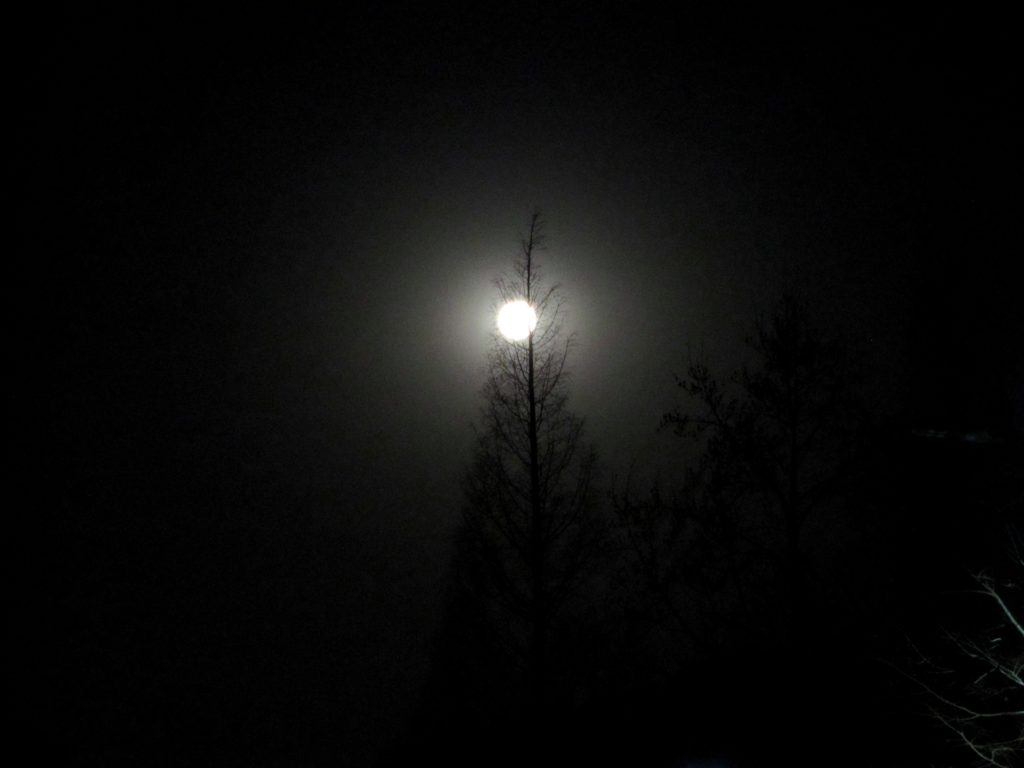On the Fear of Death
Today, hundreds of millions of men and women from most of the nations of the developed world have been herded into mass hysteria and precipitous panic over a virus outbreak that has proved to be no more ravaging than a bad flu season, an illness that is having its severest effects mostly among the small proportion of the population that is already at great risk of dying in the very near future due to a combination of old age and potentially fatal preexisting health conditions.
Late modern humanity has proved spiritually incapable of withstanding the onslaught of media alarmism and ominous public warnings unsupported by any verifiable facts and numbers. And in response to this propaganda and distortion, they have succumbed, in a matter of mere weeks, to the desperate urge to throw themselves at the mercy of rulers and administrators, in the belief that if — but only if — we grant our leaders unprecedented and supra-constitutional powers to exert total control over our societies, our property, our associations (including explicitly political associations), our economic markets, our social interactions and family lives, our privacy, our daily movements and our personal information, and the future of our nations (by means of these precedent-setting powers), then they will do everything they can to save and protect us. Of course, the rulers are promising no such thing. They are promising only to delay the spread of the disease, in order to ensure that its effects are felt continually over a much longer period of time — that is their literal intention, openly stated. But the dispirited multitudes, motivated entirely by irrational fear, need to hear a different message, so they hear it: “If you give us your soul, and the soul of your nation, we the elite will save and protect you.”
Save and protect them from what? The answer, of course, is obvious. From death. No, not the death of “the elderly.” If there is one thing we have all learned through this “crisis,” it is that the vast majority of people, along with their rulers, have no concern whatsoever for the fate of their elders, although they are very happy to have those elders as a rhetorical and political mask for their real concern, which is an overwhelming and therefore easily-exploited fear of their own death.
We all know this now. We, the happy few who wish to hold onto what is left of our marbles in an age of spiritual disintegration, have already come to terms with this saddest of all realizations: We are living among pettily selfish cowards. We are surrounded by them. In a mad rush to escape from the monster of their fear, they would unhesitatingly trample over us, our freedom, our livelihoods, our privacy, our political hopes, and, if they could, our eternal souls, sacrificing us to their God of Safety, aka The State. They would destroy us in a New York minute to satisfy their hysterical lust for a perfectly purified world that promises illness-free immortality.
There is nothing left to say to these people, and their numbers vastly outvote ours. They are lost in a wilderness of mindless fear, childish gullibility, and immoral self-absorption, and they are going to take down as much of our world as they can grab hold of as they fall.
Let us forget about them, then. For all the good things they can and will destroy, and are already destroying, the one good they cannot rob us of happens to be the greatest of all goods, namely our rational souls. And the highest purpose of a rational soul is to seek wisdom, which is to say that the ultimate victory of the happy few in this situation will not be practical, but spiritual. We can learn from our age of decline, focusing our minds on the terrible errors and weakness we see around us as object lessons. We can sort life into its proper hierarchy of goods and goals, taking the monumental confusion of this moment as a helpful contrast to give our investigation a clear starting point.
And if there is a single failure that defines this moment of decline, it must be the one I have just outlined, the shriveling of natural spiritedness in late modernity, as mankind descends into a quivering mass of irrational dread regarding the most certain and necessary fact of all earthly life, namely the inevitability of death.
Let us take a moment here, then, not with the Sisyphean attitude of people repeatedly entering into debate with overgrown children, but with the philosophic attitude of people seeking rational distance and emotional detachment from the dominant noise of whimpering and groveling all around them, to come to terms with the fear of death itself, its meaning, and its proper limits.
The simplest way to launch ourselves into an intellectual domain far beyond today’s hysteria is with this blunt admonition to ourselves: “Don’t lose sleep over whether you are going to die. You are, so you can stop worrying about it.”
Giving up valuable time and energy to the fear of death is like letting a promising afternoon escape you while you fret about whether the sun is going to set. It is, and you know it is, so get on with your daylight activities.
“But the difference,” one might object, “and the chief source of our fear, is that we know when the sun will set, whereas we do not know when we might die.”
That is true — but it is also all the more reason not to waste time paralyzed by fear of the approaching inevitability.
Consider this: No one experiences the fear of death when he believes death lies in the distant future; the fear of death grips us only when we imagine the moment may be imminent. But if death is indeed coming as early as you fear, then every moment you let slip away worrying about it entails the sacrifice of a most precious commodity that you can little afford to waste. If, on the other hand, death comes later than you fear, then the years you waste now on dreading its premature arrival will prove to have been pure folly — time, thought, and emotional fuel thrown to the wind.
In fact, however, this second condition is psychologically impossible. Death will never come later than you fear. Fear is a passion that expands to fill the available space. And its power to consume your energy grows over time, as with any bad habit. To the one who fears it, death will always come as early as he fears, and never later; for his life, to the extent that he gives himself to this passion, will be lived as, in effect, nothing but a series of ominous, dreadful tomorrows, each one more terrifying than the one before. Thus, in truth, regardless of how long one actually has to live, the fear of death, once allowed to dominate the mind even of a man not truly facing immediate peril, necessarily engenders the first psychological result: not a mere folly, but the frittering away of a most precious good. He who lives in perpetual fear of death over a prolonged period is like a wealthy miser who lives to old age like a poor man, forever begrudging himself and his loved ones the smallest comforts, and finally dying on a mattress stuffed with his millions.
And in practical fact, since none of us knows, in principle, when death is coming — it could be while you read this sentence, or while I write it — it is quite absurd to dread the doom that tomorrow might bring. How do you know you have even that long? The truth is, you do not know, and you will never know. The approaching danger you fear might already be upon you, without your realizing it. In that case, your fear is doubly foolish, for its proximate object (a virus outbreak, for example) may be of no consequence to you whatsoever in light of the falling tree or heart attack that is about to kill you, long before any flu bug has a chance to infect you.
In other words, the unpredictable inevitability of death is the quality that makes living in fear of it most irrational. To fear “running out of time” might make some sense if there were indeed a clock winding down before our minds, like the approaching sunset. But there is no clock whatsoever — we may have twenty years left, twenty days, or twenty seconds, and there is no way to know which is correct. The only sensible approach, then, is to do at this moment what the moment seems to demand. By that I do not mean to “live for the moment,” or any such amoral nonsense. I mean precisely the opposite: Respect the continuity and wholeness of your life at all times; stop looking for ways to escape or hide from the life you have. Rather, do everything in your power to ensure that the life you are living now is worthy of being the last chance you get. Keep your brush to the canvas and make each stroke as consistent an addition to the whole painting as you possibly can. One day, the stroke you are making will be the last one. To mar the work with a frivolous or irreverent stroke when you may have no time left to correct the mistake displays the height of disrespect for one’s life and oneself. And few examples of wasted time and energy are more flagrant than frittering away days and years worrying about an unpredictable inevitability, rather than using whatever days and years you have fruitfully and earnestly, letting things outside of your rational control take care of themselves, as it were.
I conclude this rumination with an observation I have often made to students in person, and which I incorporated into an essay on a related topic last year:
[This] recurs every so often during class, at least once each semester I would guess. Someone will ask me the standard self-reflection question, “What would you do if you found out you were dying?”
I always answer the same way, with contextual variations:
“But I am dying. I’ll tell you a little secret: I have a fatal disease — and so do you, and so does everyone in this room. It’s called life. And the worst part of this disease is that it’s not neat and tidy; you have no idea when it’s going to kill you. It could be in twenty years, or it could be before I finish this sentence.
“So what would I do if I found out I were dying? In fact, I did find out, and I’m doing it right now. I would do as I am doing: I would get up early, spend time thinking, walking, and writing, share interesting and serious conversation with a few people who have become important to me or who need my help, and if I had any classes scheduled, I would teach them and try to enjoy the time with my students.
“Think about it: If you answer the question about what you would do if you were dying with activities completely different from what you are doing now, that means you don’t really care about your current life, because if you did, why would you give it up when you were running out of time to live it? I do care about my current life, by which, in the end, I mean this: I didn’t choose to live this way without considering what I would do if my time were running out. I chose this life because my time is running out. So why would I do anything different?
“And if your answer would be to do things that are completely different from your current life, then you should ask yourself why.
“And more importantly: Why are you living a life you don’t want?”



